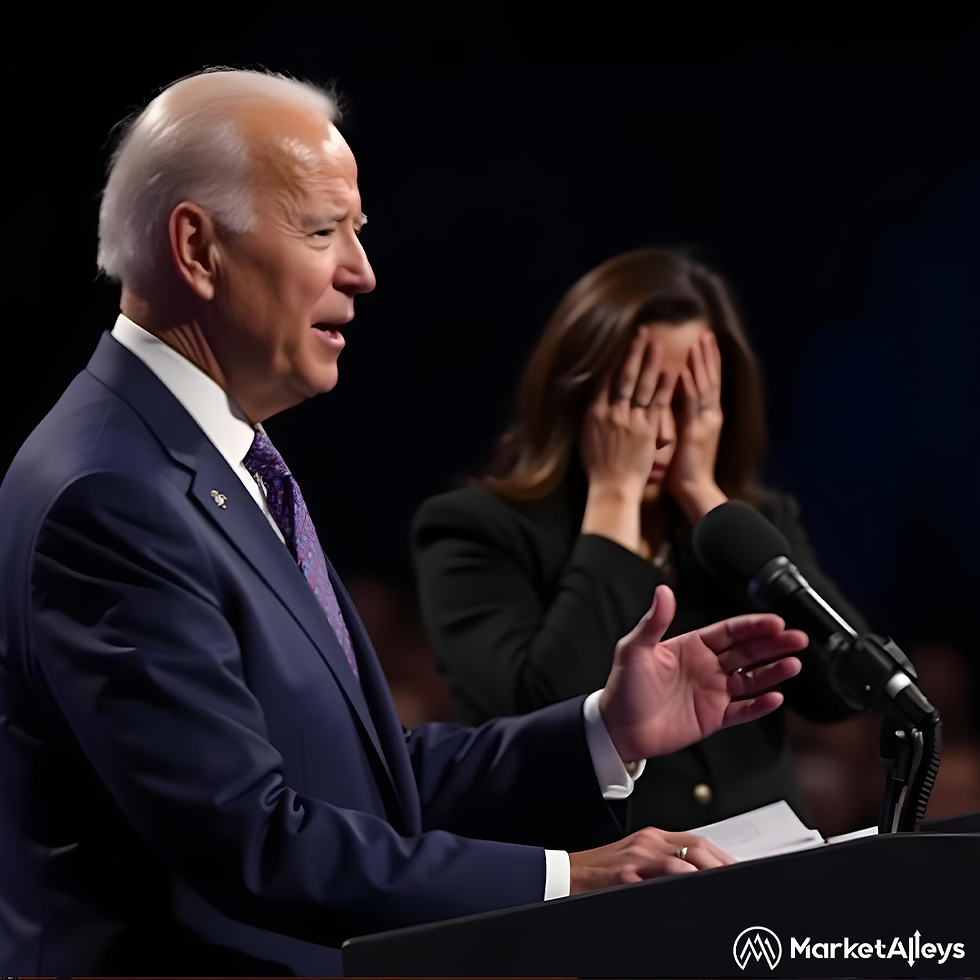Did the White House Cross a Line? Stenographers Protest Transcript Alteration After Biden’s “Garbage” Comment
- MarketAlley's Editorial

- Nov 1, 2024
- 3 min read
Updated: Nov 7, 2024
The recent controversy surrounding President Biden’s "garbage" remark has led to significant scrutiny as White House officials face accusations of bypassing established protocol. Concerns emerged after the alteration of an official transcript, sparking questions about integrity and transparency.

Key Takeaways:
White House altered an official transcript of President Biden's “garbage” comment, raising concerns from the Stenography Office.
GOP leaders demand the preservation of documents, citing potential violations of the Presidential Records Act.
The alteration sparked political backlash, with Trump capitalizing on the controversy and Harris distancing herself from the remarks.
Transcript Alteration: The Spark Behind the Controversy
The official White House Stenography Office raised objections after press officials made edits to President Biden’s comments during a video call with Voto Latino. According to the unaltered transcript, Biden stated, “The only garbage I see floating out there is his supporters — his demonization of Latinos is unconscionable, and it’s un-American.”
However, the White House press office revised the transcript, inserting an apostrophe to suggest Biden was referring to a specific supporter rather than a broad group: “The only garbage I see floating out there is his supporter's.” This subtle but impactful change aimed to mitigate backlash, indicating that Biden's criticism was directed at the comedian at a rally, not millions of Trump supporters.
Stenographers Protest the Transcript Alteration
Career stenographers, whose role is to ensure the accuracy of official records across administrations, raised the alarm. In an internal email, the head of the Stenography Office described the press office’s action as a “breach of protocol and spoliation of transcript integrity.” The email highlighted that edits to official transcripts must be formally requested and approved to maintain trust in public records.
The supervisor noted that, in urgent cases, withholding a transcript is an option for the press office but altering it unilaterally is not permitted. This situation led to discrepancies between the Stenography Office's version—distributed to the National Archives—and the altered transcript published by the press office.
Fallout and GOP Reactions
The incident has fueled political tensions, particularly with the GOP-led House Oversight Committee demanding transparency. Republican leaders, including House Republican Conference Chairwoman Elise Stefanik and House Oversight and Accountability Chairman James Comer, have asked the White House to preserve all documents related to the transcript change, citing potential violations of the Presidential Records Act of 1978.
President Biden’s original statement quickly became ammunition for the Trump campaign. Former President Trump capitalized on the controversy by holding a photo opportunity inside a garbage truck, amplifying the critique of Biden’s words. Vice President Kamala Harris distanced herself from the remarks, emphasizing her disagreement with any criticism directed at voters based on their political choices.
Implications of the Transcript Alteration
The controversy has raised broader questions about how the White House handles communication challenges and whether protocol deviations could erode public trust. Critics argue that altering official transcripts undermines transparency, while defenders claim it was an attempt to clarify a misunderstood statement in the face of rapid media reactions.
White House Senior Deputy Press Secretary Andrew Bates stated, “The President confirmed in his tweet that he was addressing the hateful rhetoric from the comedian. That was reflected in the transcript.” However, this clarification has done little to pacify critics or the GOP’s call for an investigation.
Conclusion
The transcript alteration following President Biden’s “garbage” comment has cast a spotlight on White House practices and accountability. As the House Oversight Committee looks deeper into the matter, the administration’s handling of such protocols may be scrutinized for its long-term impact on public trust and the preservation of official records.










Comments